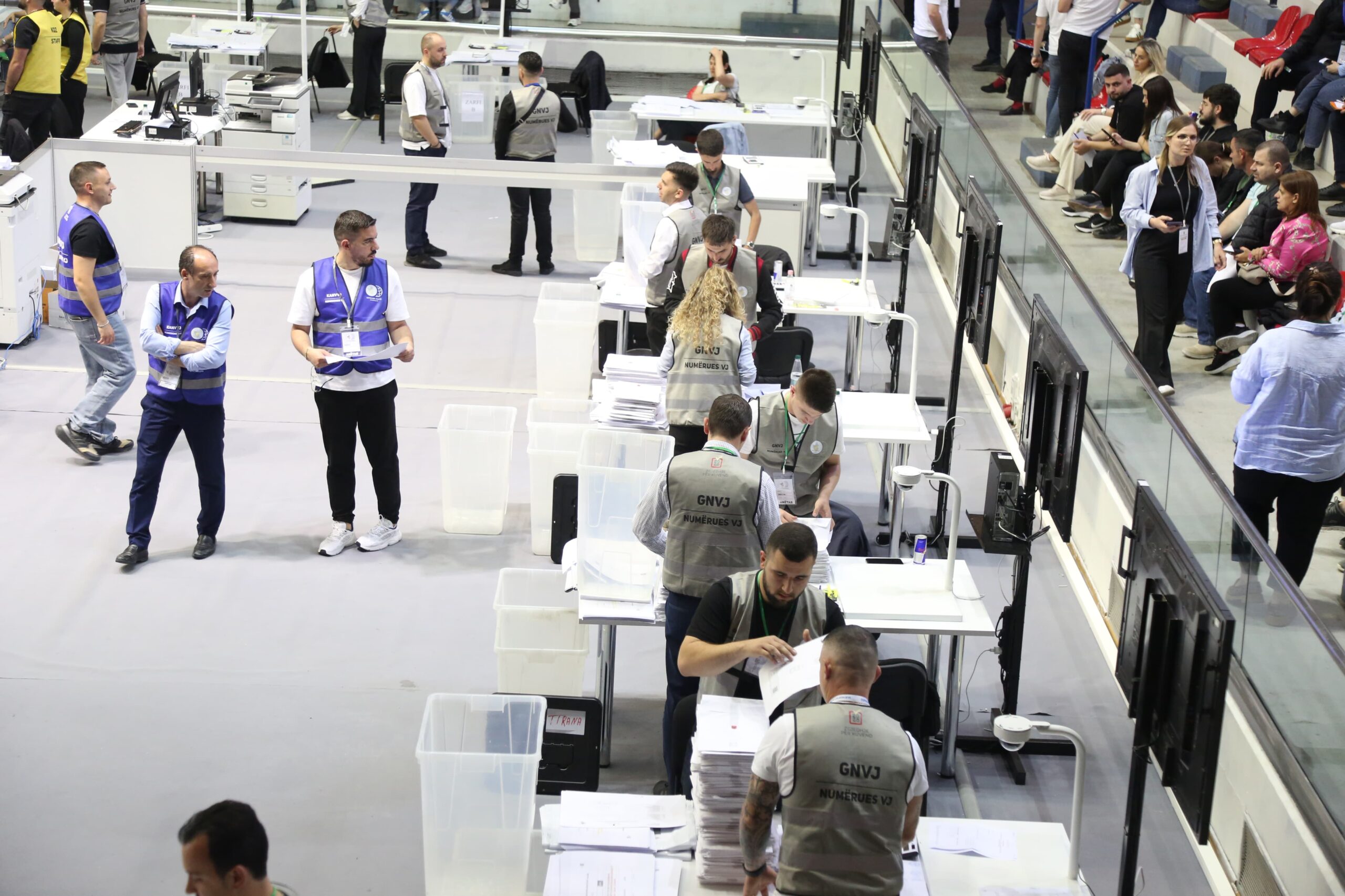Recount reveals hollow DP fraud claims as Berisha plays for time

A week into the ballot recount in four Albanian districts, the process is exposing not electoral fraud, but the fragility of the Democratic Party’s (DP) claims. What was framed by the opposition as a fight for electoral integrity is increasingly revealing itself as a delay tactic—intended to buy time for Sali Berisha to weather the internal storm after a resounding electoral defeat on May 11.
Why is this important: The recount, requested by DP and approved by its own members in the Commission of Appeals and Sanctions (CAS), has so far unearthed only marginal, human errors—common in any manual counting process and well within international standards. In fact, in a plurality of cases, the errors seem to have favored the Democratic Party itself. The discrepancy between their public accusations and the reality of the vote count is striking. This undercuts Berisha’s repeated claims that the Socialist Party rigged the election and turns the spotlight inward.
Context: The recount is underway in Tirana, Fier, Elbasan, and Durrës, covering hundreds of ballot boxes. In Tirana and Fier, the recount is comprehensive; in Durrës and Elbasan, it is partial. The State Election Commissioner cannot certify the election results until the recount concludes, likely in mid-July.
Faced with a growing gap between rhetoric and reality, Berisha now has publicly disowned the recount effort altogether. In a press conference, he denied ever calling for the review of votes cast for his candidates, instead reverting to claims that “the vote was killed before it entered the box”—a refrain he has repeated throughout this electoral cycle. But this too rings hollow, as the recount was triggered by DP’s official complaint and supported by its own CAS members.
Behind the scenes, the motive appears to be clear. Under DP’s statute, the party leader must resign after losing a general election. Delaying the certification buys Berisha time—time for emotions to settle over the summer, for pressure within the party to cool, and for the conversation to shift away from accountability.
What else: DP has never accepted a defeat without contesting the result—regardless of who ran the government at the time. Even under the so-called “technical government” of 2017 when most key ministries and institutions were under its control following an agreement with the Socialists, it claimed foul play. This pattern reflects not electoral irregularities, but a political culture unwilling to accept loss.
While Berisha loyalists rail against the outcome—both in Tirana and in European capitals—the recount shows a different story: a process not rigged against them, but one in which their own appointees distorted the vote. Ironically, it is DP that has long and vehemently resisted reforming Albania’s election administration system to depoliticize it, precisely because political parties want to keep control over the counting process.
What’s next: The recount continues through mid-July, meaning Albania’s final election results will remain uncertified until then. Meanwhile, Berisha remains at the helm of a fractured DP, trying to ride out the storm by blaming a system his own party helped shape.


